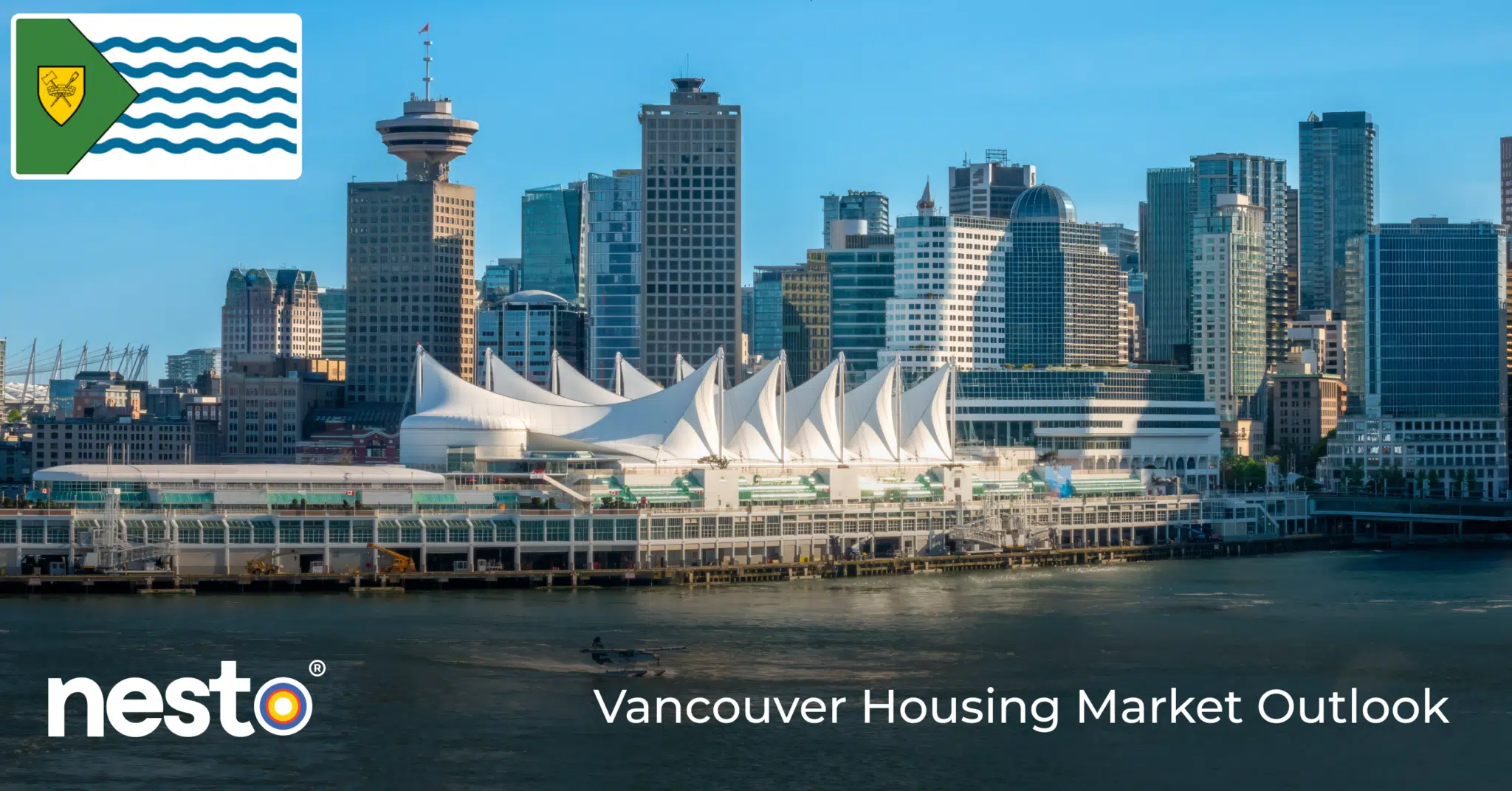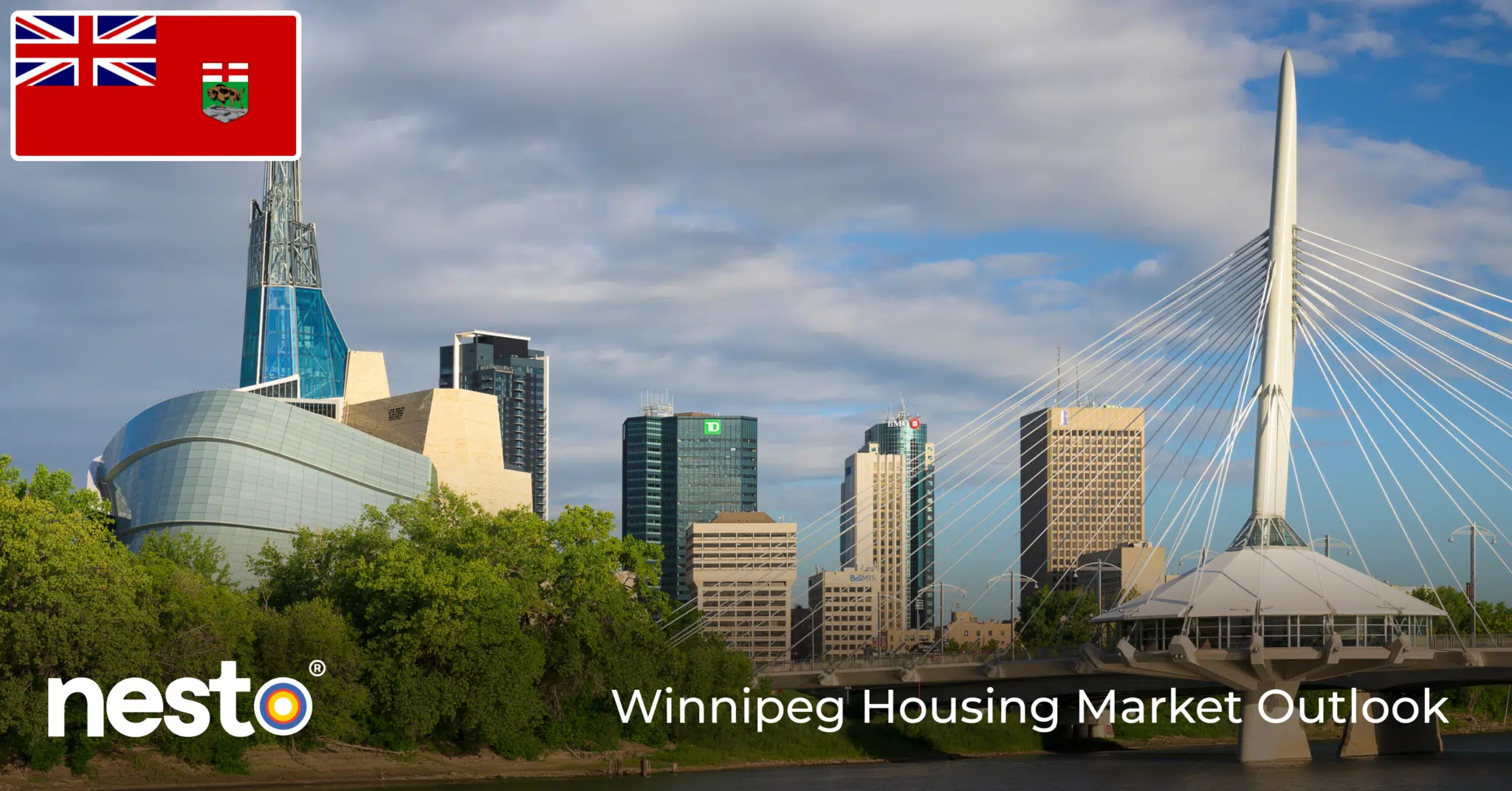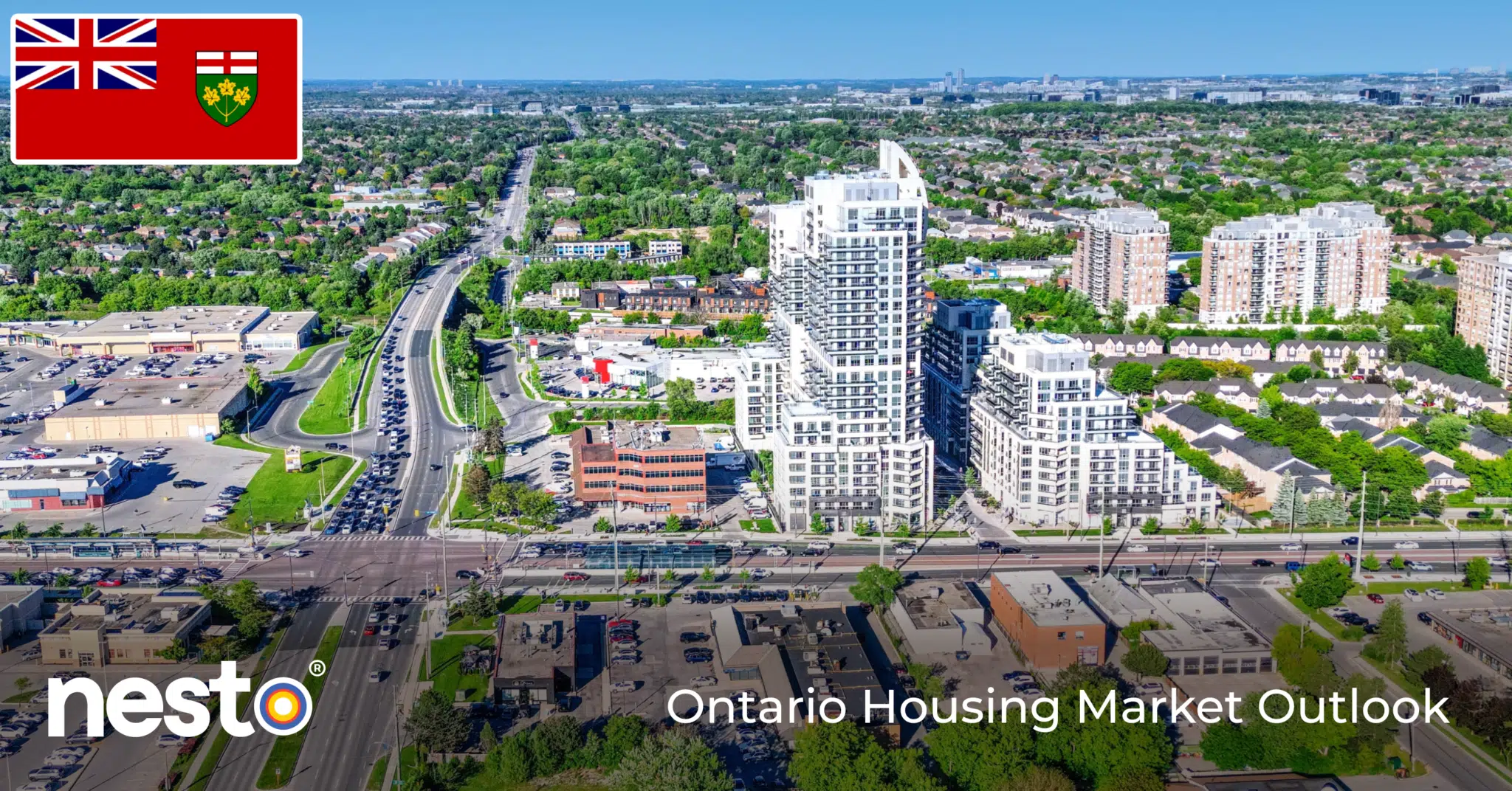Vancouver Housing Market Outlook 2026

Vancouver Home Sales Fall Nearly 30% Below Seasonal Norms
Metro Vancouver entered 2026 with momentum still working against it. January home sales fell nearly 30% from last year, marking one of the slowest starts in over 20 years. At the same time, active listings climbed to roughly 38% above the 10-year seasonal average, creating a clear supply-demand imbalance.
This combination of weaker sales and elevated inventory is shifting market power toward buyers. The sales-to-active listings ratio remains below the level that typically signals upward price pressure, indicating that downward pressure on pricing may persist if conditions do not tighten.
Why Are Metro Vancouver Sales So Weak?
Metro Vancouver sales are soft as homebuyers remain cautious, while supply has stayed elevated. Buyers are adjusting to economic uncertainty, higher ownership costs compared to pre-pandemic years, and a market that no longer rewards urgency.
Last year ended with one of the lowest annual sales totals in decades, and January’s performance reflects that slow carryover momentum rather than a sudden shock. Market psychology is gradually shifting toward a new normal defined by steadier, lower transaction volumes.
What is Happening to Vancouver Home Prices?
Metro Vancouver benchmark home prices are down year over year across detached, attached and apartment segments. Monthly declines remain modest, suggesting gradual normalization rather than a sharp correction cycle.
Detached homes have seen the largest absolute price adjustments, while the apartment and townhouse segments continue to face competitive pressure from higher inventory levels. Price stabilization will likely depend on whether demand strengthens later in the year.
Where is the Market Stronger Or Weaker Within Vancouver?
Areas closer to Vancouver’s urban core are expected to show more resilience, particularly for apartment condominiums. Suburban markets farther from employment centres may require additional price adjustments before sales volumes improve.
Ground-oriented attached homes in well-connected North Fraser communities may outperform due to relative pricing advantages and commuting access. High-priced detached homes are unlikely to see meaningful appreciation in the near term, given affordability limits.
What is the Outlook for Housing in Vancouver?
Metro Vancouver’s resale market is expected to remain subdued through much of 2026. Sales may rebound moderately if pent-up demand re-engages the market, but activity will likely remain below long-term averages.
New housing starts are projected to decline, largely due to weak condominium presales and high construction costs. Rental construction has been strong in recent years, but rising vacancy rates may temper momentum for future projects.
Housing in Metro Vancouver is not collapsing; it is adjusting to a slower-demand environment with elevated supply. Buyers have more leverage, sellers must price strategically, and meaningful price growth will likely require a sustained recovery in sales activity.
Vancouver Housing Market Highlights
- The average selling price of a home in Vancouver decreased by 5.7% year-over-year to $1,101,900 in January.
- The average selling price of a single-family home in Vancouver decreased by 6.9% year-over-year to $1,858,900 in January.
- The average selling price of a townhouse/multiplex in Vancouver decreased by 5.4% year-over-year to $1,043,400 in January.
- The average selling price of a condo in Vancouver decreased by 5.9% year-over-year to $704,600 in January.
- The average rent in Vancouver is now $2,650 for January.
- February 20, 2026: Today’s lowest mortgage rate in Vancouver is
for a 5-year fixed.
Data from the Greater Vancouver Realtors (GVR) indicates that the average price of resale residential homes sold across Vancouver in January was $1,101,900, and itdecreased of 5.7% compared to a year ago.
GVR also reported a sales-to-new-listings ratio (SNLR) of 21%, indicating Buyers market conditions in Vancouver for January.
Composite Home Prices
![]()
The average selling price of a home in Vancouver was $1,101,900 for the month of January, that’s decreased by 1.2% month over month. On a year-over-year basis, Vancouver home prices have decreased 5.7% year-over-year.
Single-family Home Prices
![]()
The average selling price of a single-family home in Vancouver was $1,858,900 for the month of January, that’s decreased by 1.5% month over month. On a year-over-year basis, single-family home prices in Vancouver have decreased by 6.9% year-over-year.
Townhouse and Multiplex Prices
![]()
The average selling price of a townhouse in Vancouver was $1,043,400 for the month of January, that’s decreased by 1.2% month over month. On a year-over-year basis, the price of a townhouse in Vancouver has decreased by 5.4% year-over-year.
Condo Prices
![]()
The average selling price of a condo in Vancouver was $704,600 for the month of January, that’s decreased by 0.8% month over month. On a year-over-year basis, the price of a condo in Vancouver has decreased 5.9% year-over-year.
Transactions – Number of Sales
![]()
The number of sales in Vancouver was 1,107 during January, that’s decreased by 28% month over month. On a year-over-year basis, sales in Vancouver have decreased by 28.7% year-over-year.
New Listings
![]()
The number of new listings in Vancouver was 5,157 during January, that’s increased by 178.9% month over month. On a year-over-year basis, new listings in Vancouver have decreased by 7.3% year-over-year.
Real Estate Market
![]()
The sales-to-new-listings ratio (SNLR) in Vancouver was 21% during January, indicating a Buyers. On a monthly basis, that’s decreased by 74.2% month over month. Vancouver’s yearly sales-to-new-listings ratio has decreased by 23% year-over-year.
The sales-to-new-listings ratio (SNLR) measures the number of home sales compared to new listings. An SNLR below 40% suggests a buyer’s market, where buyers have the upper hand and greater negotiating power. An SNLR between 40% and 60% is a balanced market, while an SNLR of over 60% is considered a seller’s market.
Annual Changes to Composite Home Prices in Vancouver
Vancouver Market Rents Snapshot
The average rent in Vancouver was $2,650 for the month of January.
The average rent for a 1-bedroom apartment in Vancouver was $2,362 for the month of January, which decreased by 6.3% year over year.
The average rent for a 2-bedroom apartment in Vancouver was $3,279 for the month of January, which decreased by 4.8% year over year.
Rental Price Changes by City
| Rank | CITY | Total Average | 1 Bedroom | 2 Bedrooms | Year-over-Year Change |
|---|---|---|---|---|---|
| 1 | North Vancouver | $2,958 | $2,469 | $3,287 | −2.2% |
| 2 | Vancouver | $2,650 | $2,362 | $3,279 | −4.8% |
| 3 | Oakville | $2,502 | $2,216 | $2,576 | −19.3% |
| 4 | Toronto | $2,504 | $2,183 | $2,801 | −8.6% |
| 5 | North York | $2,528 | $2,127 | $2,688 | −1.9% |
| 6 | Burnaby | $2,505 | $2,144 | $2,809 | −6.7% |
| 7 | Coquitlam | $2,524 | $2,107 | $2,765 | −3.9% |
| 8 | Mississauga | $2,446 | $2,043 | $2,454 | −8.6% |
| 9 | Etobicoke | $2,382 | $2,102 | $2,562 | −8.3% |
| 10 | Kanata | $2,412 | $2,238 | $2,502 | −17.3% |
| 11 | Brampton | $2,361 | $1,910 | $2,208 | −7.2% |
| 12 | Kingston | $2,315 | $1,968 | $2,502 | 22.0% |
| 13 | Scarborough | $2,318 | $1,910 | $2,417 | −5.6% |
| 14 | Vaughan | $2,266 | $2,082 | $2,499 | −6.7% |
| 15 | Greater Sudbury | $2,067 | $1,918 | $2,167 | −2.4% |
| 16 | Langley | $2,344 | $2,071 | $2,465 | −1.8% |
| 17 | Burlington | $2,376 | $2,065 | $2,443 | −5.0% |
| 18 | Ajax | $2,248 | $1,814 | $2,229 | −4.5% |
| 19 | Halifax | $2,270 | $2,052 | $2,500 | 0.10% |
| 20 | Victoria | $2,224 | $1,942 | $2,605 | −5.1% |
| 21 | Guelph | $2,159 | $1,979 | $2,291 | −4.0% |
| 22 | Kelowna | $2,015 | $1,686 | $2,124 | −10.8% |
| 23 | Surrey | $2,124 | $1,818 | $2,249 | −8.5% |
| 24 | Ottawa | $2,127 | $1,945 | $2,458 | −2.8% |
| 25 | New Westminster | $2,120 | $1,872 | $2,611 | −7.4% |
| 26 | Waterloo | $2,230 | $2,028 | $2,367 | −2.7% |
| 27 | Oshawa | $2,121 | $1,753 | $2,052 | −5.4% |
| 28 | Nanaimo | $2,055 | $1,820 | $2,328 | 8.20% |
| 29 | Barrie | $2,154 | $1,904 | $2,184 | −1.2% |
| 30 | East York | $2,302 | $1,963 | $2,554 | −4.3% |
| 31 | Hamilton | $2,069 | $1,753 | $2,086 | 0.40% |
| 32 | Brossard | $2,066 | $1,794 | $2,169 | 1.60% |
| 33 | Cambridge | $2,057 | $1,797 | $2,101 | −6.4% |
| 34 | Kamloops | $1,992 | $1,805 | $2,161 | 5.60% |
| 35 | Airdrie | $1,954 | $1,450 | $1,739 | −0.9% |
| 36 | Laval | $2,098 | $1,710 | $2,348 | 11.00% |
| 37 | Kitchener | $2,013 | $1,819 | $2,130 | −4.5% |
| 38 | Brantford | $1,979 | $1,802 | $2,058 | 0.50% |
| 39 | Niagara Falls | $1,929 | $1,684 | $1,899 | −9.4% |
| 40 | Montreal | $1,913 | $1,710 | $2,216 | −1.3% |
| 41 | London | $1,916 | $1,650 | $2,051 | −4.5% |
| 42 | Gatineau | $1,885 | $1,655 | $2,072 | −4.7% |
| 43 | Calgary | $1,871 | $1,535 | $1,850 | −3.9% |
| 44 | Peterborough | $1,973 | $1,677 | $1,991 | −2.3% |
| 45 | St. Catharines | $1,827 | $1,608 | $1,945 | −1.2% |
| 46 | Welland | $1,675 | $1,506 | $1,823 | −0.4% |
| 47 | Windsor | $1,658 | $1,523 | $1,839 | −0.1% |
| 48 | Sarnia | $1,728 | $1,508 | $1,833 | −3.9% |
| 49 | Winnipeg | $1,664 | $1,409 | $1,796 | 3.10% |
| 50 | Côte Saint-Luc | $1,535 | $1,402 | $1,787 | −21.4% |
| 51 | Edmonton | $1,591 | $1,279 | $1,619 | −2.6% |
| 52 | Saskatoon | $1,566 | $1,350 | $1,554 | 4.50% |
| 53 | Lethbridge | $1,528 | $1,369 | $1,570 | 0.70% |
| 54 | Quebec City | $1,485 | $1,364 | $1,646 | −12.3% |
| 55 | Red Deer | $1,529 | $1,219 | $1,489 | 5.90% |
| 56 | Regina | $1,466 | $1,255 | $1,538 | 4.80% |
| 57 | Fort McMurray | $1,370 | $1,167 | $1,419 | −1.3% |
| 58 | Medicine Hat | $1,372 | $1,217 | $1,395 | 0.10% |
| 59 | Lloydminster | $1,235 | $1,025 | $1,340 | 7.70% |
| 60 | St. John's | $1,238 | $1,086 | $1,250 | −6.4% |
Source: Rentals.ca Network Data & Urbanation Inc.
Rental Price Changes by Province
Rental Price Growth by Housing Type
How Does Renting Compare with Homeownership in Vancouver?
Each $100,000 in mortgage balance costs an average of $509.35 per month on nesto’s lowest fixed 5-year rate at
For each $100,000 in mortgage balance, a 0.25% change in Canada’s policy rate impacts the monthly payment by $13.23. The rates used for calculation are those offered for insured purchases with less than a 20% downpayment and a 25-year amortization. Canada’s policy rate is 2.25%, and nesto’s prime rate is set to 4.45%.
We’re curious…
Are you a first-time buyer?
Frequently Asked Questions (FAQ) About the Vancouver Housing Market Outlook for 2026
Why are Vancouver home prices expected to decline in 2026?
Vancouver home prices are expected to continue declining into 2026 due to high inventory levels and extreme affordability constraints.
Is Vancouver expected to remain a buyer’s market in 2026?
Vancouver’s housing market conditions are expected to remain buyer-friendly to balanced well into 2026, depending on the segment and neighbourhood.
Which Vancouver housing segment is most affected by price softness?
Condominiums and investor-owned units are most affected by soft home prices in Vancouver.
Are Vancouver sellers adjusting their expectations?
Sellers in Vancouver are increasingly adjusting expectations by reducing prices and offering incentives.
What would stabilize Vancouver’s housing market?
Sustained sales growth driven by buyer confidence, rather than interest rate cuts, would stabilize Vancouver’s housing market.
Why Choose nesto
At nesto, our commission-free mortgage experts, certified in multiple provinces, provide exceptional advice and service that exceeds industry standards. Our mortgage experts are salaried employees who provide impartial guidance on mortgage options tailored to your needs and are evaluated based on client satisfaction and the quality of their advice. nesto aims to transform the mortgage industry by providing honest advice and competitive rates through a 100% digital, transparent, and seamless process.
nesto is on a mission to offer a positive, empowering and transparent property financing experience – simplified from start to finish.
Contact our licensed and knowledgeable mortgage experts to find your best mortgage rate in Canada.
Ready to get started?
In just a few clicks, you can see our current rates. Then apply for your mortgage online in minutes!



